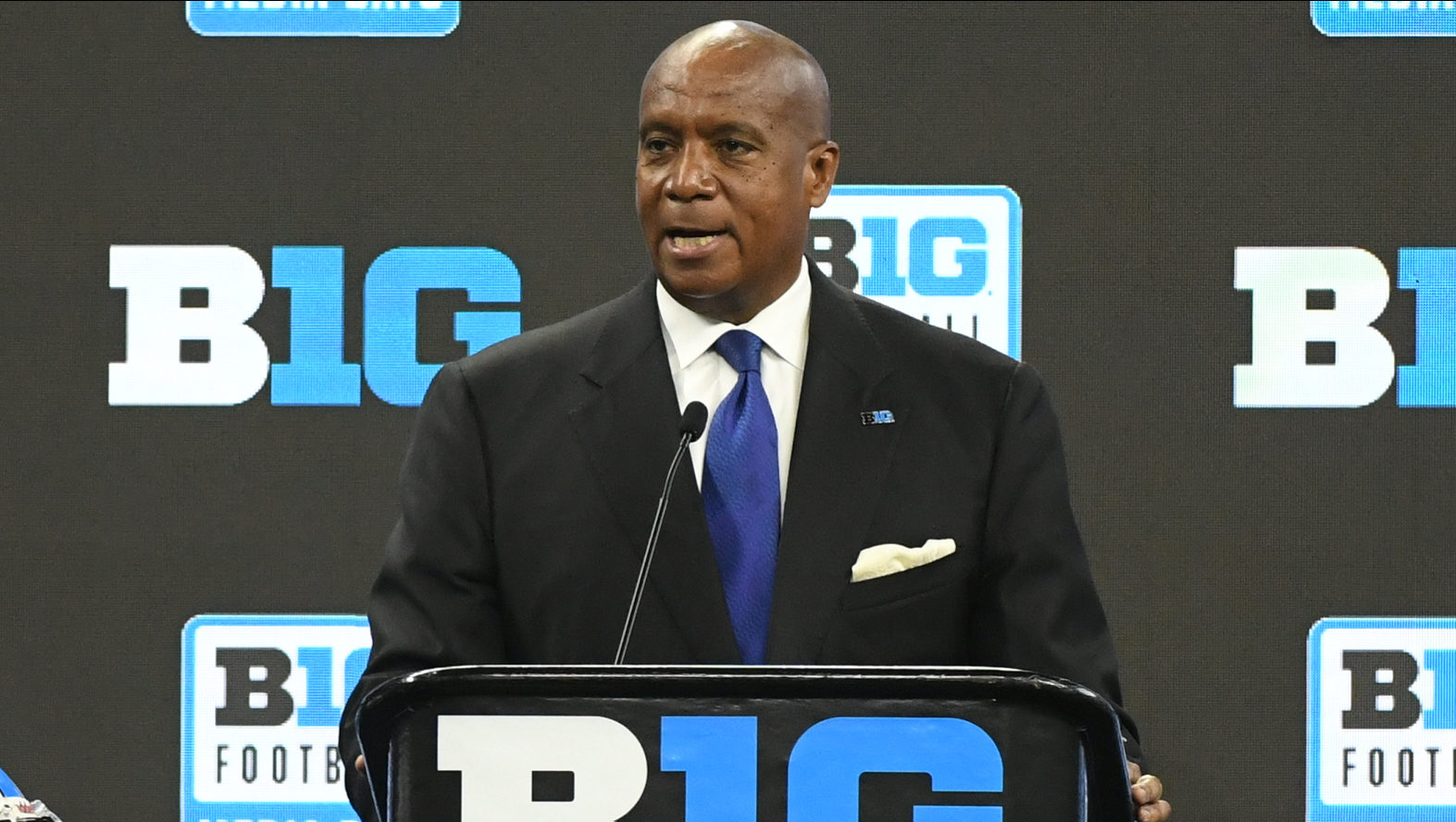Ad Disclosure

It’s hard to imagine realignment working out for the Big Ten (or Kevin Warren)
By Ryan O'Gara
Published:
Once again, the SEC is thinking ahead, and the Big Ten is on its heels. That’s my biggest takeaway from a frantic last week in which news broke that Texas and Oklahoma are readying to join the SEC … possibly as soon as 2022.
Apparently, Big Ten commissioner Kevin Warren found that out at the same time you and I did. And that’s the problem. If the realignment winds are swirling, the Big Ten needs to be positioning itself to attack, not react. Yet Warren, in his press conference at Big Ten Media Days, portrays a position of weakness.
Heck, the Big Ten doesn’t even know what it’s going to do yet about COVID this season (check back in August!). COVID has only been a thing for about 17 months now. If that’s the pace the Big Ten is moving, they are going to be left out in the lurch.
This past week made clear that the calendar flipping from 2020 to 2021 hasn’t changed the fact that the SEC is running circles around the Big Ten. The SEC outmaneuvered the Big Ten during the pandemic, and it’s happening again. And the Big Ten seems helpless to stop it.
When asked about the SEC adding Texas and Oklahoma, Warren talked about seeing “how that evolves and where it lands.” By then, it’ll be too late. Here’s a question: If Texas and Oklahoma were looking to leave, why wasn’t the Big Ten looking forward and trying to add them. A better question might be, would Texas and Oklahoma even want to join the Big Ten after last year’s debacle?
I’m sure Warren is a smart guy, but he sure doesn’t come across that way in his press conferences. He failed to communicate last year, but you could at least make the excuse that he had only been on the job a few months and a once-a-century pandemic rocked the country. But he’s in his second year now, and it’s still an issue.
His press conference last Thursday was insufficient. It was a fluffy 26-minute opening statement, followed by 15 minutes of him complimenting reporters for their questions — and then not coming remotely close to answering them. There wasn’t one thing that anyone learned from it. That’s incredibly troubling, because there are no more excuses. This is the job. College athletics is changing, as Warren repeatedly mentioned. Is there any indication that Warren knows what the appropriate response from the Big Ten should be?
Because there is a response. Maybe it is standing pat. But in all likelihood, there is a move to be made because every time there is realignment, it seems there are dominos that fall after the first move. And if the Big 12 is left with only 8 teams, there almost surely will be more movement. Is the Big Ten ready? Publicly, at least, there is no indication that is the case.
Speaking of that press conference, it felt like Warren was trying to reassure everyone that it’ll be OK that former Wisconsin coach and athletic director Barry Alvarez was joining the Big Ten as an adviser. And that’s all well and good that Alvarez is helping Warren, but if he’s so important to figuring all of this out, why not make him the commissioner? Then, there are little things that make me roll my eyes. Warren referenced Illinois University instead of the University of Illinois. He was reading a prepared statement, not just speaking off the cuff. It’s like if he said University of Ohio State. It was just strange.
It had to be a bit frustrating for Big Ten fans to see the SEC operate like this. For one, their commissioner is declarative and strong. In his Media Days press conference, Greg Sankey ripped into his league members for only having 6 schools at the vaccination threshold. When one member, Texas A&M, expressed concern of Texas joining the SEC, that situation was smoothed out behind closed doors, and “Voila!” Suddenly, Texas A&M was on board just days later.
In contrast, the Big Ten has been so divided over the past year. Nebraska, Ohio State and others have at times failed to hide their frustration with the league’s leadership.
Warren spoke plenty during his press conference about what he had learned over the last year, how it made him a stronger man. Well, it’s time to put that into action, because the SEC is building a super conference, and the Big Ten is getting left behind.
Ryan O'Gara is the lead columnist for Saturday Tradition. Follow him on Twitter @RyanOGara.